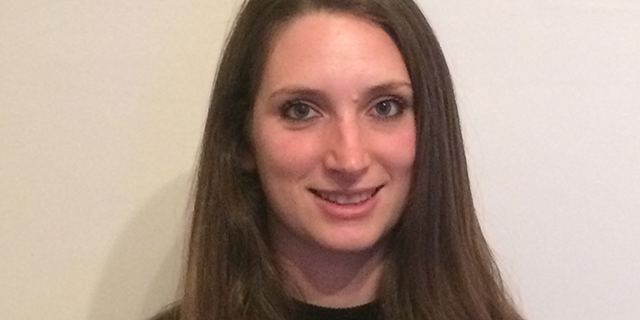Speech Pathology: Nyssa Johnson
With a Master of Speech Pathology and five years experience under her belt, Nyssa now works as a speech pathologist and key worker at Scope Australia in their early intervention team.

Tell me about your current role and your professional and educational background? How long have you worked in your current role?
An interest in the communication of stroke survivors and my time volunteering at the Victorian Stroke Association led me to enrol in the Masters of Speech Pathology. Prior to that, I studied theatre, travelled, working in a pharmacy and taught acting to children, all of which helped me to understand my desire to work in a helping role. My graduate role was as a Student Support Services speech pathologist in the Department of Education and Training. I worked in this role across the north and west regions of Melbourne for four and a half years combined. I travelled around to a different school each day of the week, working closely with school leadership to provide multidisciplinary delivery of the speech pathology service at their school. The students' needs were diverse so the role was quite generalist in nature. The focus was on working closely with teachers to embed students' intervention needs within the classroom. One year ago I started my new role as a speech pathologist and key worker at Scope Australia in their early years West Metro team. I mostly work as a key worker within the early childhood intervention service and also as a speech pathologist providing consultations to families and therapy sessions under HCWA and Better Start. I work with children aged 0-6 with disabilities and their families within the community so I do a lot of travelling and have the privilege of working within people's homes. We aim to empower families, collaborating closely with them, valuing their deep knowledge of their child and working in a strengths-based manner.
How did you go about finding your job? What techniques, websites, contacts, networks did you utilise to get your job?
I was very proactive in finding my first job. I understood the competitiveness of graduate roles in Melbourne and got my applications in early. Before I even sat my final exams, I had written my resume and prepared myself to apply for jobs in the week following my final exam. I chose to spend an extra week applying for jobs rather than beginning my post-Masters celebrations. I utilised the University of Melbourne careers service and website to assist me to write top quality applications. I asked people to proofread, which while time-consuming, is crucial step in a professional application. I searched for jobs on generic employment websites but also on the HR websites specific to the organisation. For example, Department of Education and Training jobs are usually only advertised on their own HR job search website. The exhaustion of writing job applications immediately after my final exam paid off as I secured a position out of those applications in early October. I found my Scope position through the Seek website. I chatted with a colleague who had been working as a key worker to determine whether it was the kind of position I would like to try.
What do you like most about working at your organisation?
I'm really enjoying my new position, working with children who have a diverse range of needs and their families in a trans-disciplinary model. I particularly enjoy the aspects of AAC and paediatric feeding within my new role and am valuing the opportunities to up skill in these areas. There is always so much to learn, even after five years of working. That helps to keep things exciting. I find Scope a wonderful place to work. They are a passionate and professional organisation, advocating for people of all abilities. I also find Scope extremely supportive and nurturing of us as therapists. Their induction program is fantastic and I observe that the team is wonderfully supportive and welcoming of new graduates in our team.
What is one thing you wish you knew before you started your professional career?
To pace myself, I worked very hard in my first year, thinking that I would be able to learn everything I needed to learn in that year. I almost burnt myself out before I realised that I’d be continuously learning for the rest of my career.
What is one piece of advice you would give to students who are graduating soon and are looking to work in speech pathology?
Don't be afraid to ask for help and don't feel like you're expected to know everything that an experienced speech pathologist knows. It seems obvious, but so often we get thrown in the deep end and it seems as if people expect us to know it all. It's okay to ask for floaties. Sometimes others forget to offer them to us but they do know we need them when we’re just starting out.